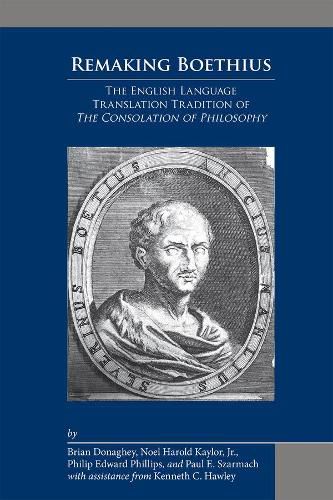Readings Newsletter
Become a Readings Member to make your shopping experience even easier.
Sign in or sign up for free!
You’re not far away from qualifying for FREE standard shipping within Australia
You’ve qualified for FREE standard shipping within Australia
The cart is loading…






This volume is a reference work, organized chronologically in its sections, with a separate entry for each translator’s work. The sections are defined by the type of translations they comprise. The plan of the book is encyclopedic in nature: some biographical material is provided for each translator; the translations are described briefly, as are their linguistic peculiarities, their implied audiences, their links with other translations, and their general reception. Sample passages from the translations are provided, and where possible these samples are taken from two of the most well-known moments in the Consolatio: the appearance of Lady Philosophy, narrated by the Prisoner, and the cosmological hymn to the Deus of the work, sung by Lady Philosophy.
Where possible, an attempt also has been made to keep the general appearance of the original printed pages. Orthographic peculiarities (in spelling, capitalization, indentation, etc.) except for the elongated s have been maintained. Notes inserted by the translators or editors upon the passages transcribed in this volume are maintained as footnotes. These notes are included because they reveal much about the scholarship that the translators bring to their work of translating. The notes signal the translators’ familiarity with commentaries and earlier Consolatio translations, and they help to identify the types of audiences targeted by the translators (whether general or scholarly). The notes indicate points in the text (either grammatical or cultural) that translators or editors deemed needful of clarification for their readers, but the notes often also represent actual borrowings of notes, sometimes verbatim, from earlier translations. Such borrowed notes help to establish or verify lines of affiliation between the translations.
$9.00 standard shipping within Australia
FREE standard shipping within Australia for orders over $100.00
Express & International shipping calculated at checkout
This volume is a reference work, organized chronologically in its sections, with a separate entry for each translator’s work. The sections are defined by the type of translations they comprise. The plan of the book is encyclopedic in nature: some biographical material is provided for each translator; the translations are described briefly, as are their linguistic peculiarities, their implied audiences, their links with other translations, and their general reception. Sample passages from the translations are provided, and where possible these samples are taken from two of the most well-known moments in the Consolatio: the appearance of Lady Philosophy, narrated by the Prisoner, and the cosmological hymn to the Deus of the work, sung by Lady Philosophy.
Where possible, an attempt also has been made to keep the general appearance of the original printed pages. Orthographic peculiarities (in spelling, capitalization, indentation, etc.) except for the elongated s have been maintained. Notes inserted by the translators or editors upon the passages transcribed in this volume are maintained as footnotes. These notes are included because they reveal much about the scholarship that the translators bring to their work of translating. The notes signal the translators’ familiarity with commentaries and earlier Consolatio translations, and they help to identify the types of audiences targeted by the translators (whether general or scholarly). The notes indicate points in the text (either grammatical or cultural) that translators or editors deemed needful of clarification for their readers, but the notes often also represent actual borrowings of notes, sometimes verbatim, from earlier translations. Such borrowed notes help to establish or verify lines of affiliation between the translations.